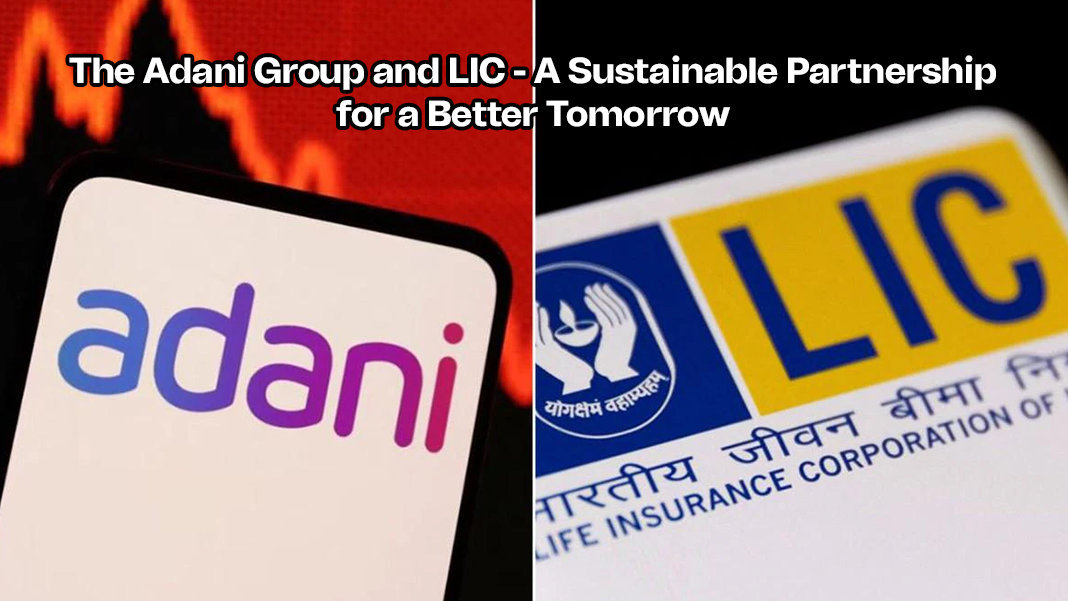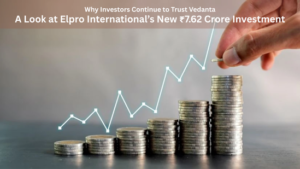The Adani Group and LIC – A Sustainable Partnership for a Better Tomorrow
In an era where sustainability is at the forefront, the Adani Group and LIC (Life Insurance Corporation of India) collaboration is a terrific example of how two of the most powerful organisations can work together to significantly impact society and the environment.
Let’s look at how the Adani Group, a conglomerate famous for its loyalty to ethical business practices, has partnered with LIC to build sustainable, valuable output and improve communities across India.
The Adani LIC relationship
Adani Enterprises Limited (AEL), the Adani Group’s primary company, is one of India’s major corporate organisations. AEL has increased shareholder value by constructing iconic infrastructure assets and expanding its involvement across various sectors focused on sustainable nation-building.
The LIC (Life Insurance Corporation of India) is a multinational public-sector life insurance corporation. It is the nation’s biggest insurance firm and the country’s largest institutional investor, with $45.7 trillion (US$570 billion) in assets under administration as of March 2023.
According to a stock exchange statement from Adani Enterprises Limited (AEL), the largest life insurer in India, LIC, invested nearly $300 crore to purchase 9,15,748 more shares as an anchor investor in a 20,000 crore fresh share offer. LIC chose 5% of the stocks allocated for anchor investors.
As anchor patrons, 33 institutional investors invested 5,985 crores in AEL. LIC previously owned 4.23% of AEL and holdings in the Adani Group’s other six publicly traded firms. They have rebounded strongly, especially following GQG Partners’ $2 billion purchase of Adani Group stocks on March 2.
Adani Group’s Sustainable Vision
Adani Group is known to be at the top of the heap for boosting productivity and reducing waste. It is India’s pioneering power company to use ‘supercritical’ technology to minimise CO2 emissions, an endeavour that earned them the UN Framework Convention on Climate Change’s (UNFCCC) Clean Development Certification.
Furthermore, they manage and operate the largest solar power projects in India. Whether addressing the Adani Group’s expansions into agribusiness or its commitment to green energy, its long-term goals align with India’s hopes for a more sustainable and affluent future. The company is positioned for future success as it further plans for long-term, sustainable growth by investing in breakthrough technologies and propagating its assets.
Emphasis On Renewable Energy
The Adani Group’s vision of creating valuable sustainable inventions extends beyond renewable energy. Green building fundamentals have been implemented in their infrastructure projects, guaranteeing that their innovations are energy-efficient and environmentally beneficial. This saves resources while establishing a standard for sustainable architectural techniques in India.
One of their most notable efforts is their emphasis on renewable energy. The Adani Group has been a torchbearer in the growth of solar and wind-generation projects. They have greatly decreased their carbon emissions and contributed to India’s clean energy ambitions by leveraging solar and wind power.
The Adani Group has constructed, developed, owned, managed, and maintained utility-scale grid-connected renewable farm projects. It makes money by selling power to federal, state, and government-backed businesses. The Group has constantly assessed the potential of the country’s wind resources for the development of wind projects. Many wind-masts have already been installed throughout the country’s resource-rich regions.
Furthermore, the group has been actively involved in afforestation activities. They recognize the significance of reforestation in climate change mitigation and have begun tree-planting programs near their construction sites. These initiatives aid in carbon sequestration, biodiversity conservation, and the creation of green spaces for locales.
Transparency and Responsibility
The Adani LIC collaboration is founded on the ideals of transparency and accountability. They uphold the most stringent governance standards, ensuring their activities are carried out responsibly. This increases stakeholder trust and serves as a model for ethical business practices in India.
Both LIC and the Adani Group highlights openness through financial disclosures, regulatory compliance, and reporting methods. They also display accountability by being dedicated to policyholders, strengthening communities, sustainable development, and moral business conduct.
Conclusion
The Adani – LIC’s relationship is more than a commercial partnership; it is a commitment to a successful and sustainable India. Their collaborative efforts to reduce the environmental impact, support community development, and promote sustainable corporate practices illustrate that enterprises can play an important role in moulding the country’s future.
As the collaboration between these two influential groups evolves, it becomes a model for other firms to follow, demonstrating that sustainable growth and community well-being coexist. The Adani LIC are creating a success story and helping to change India into a more environmentally friendly and equitable nation.












